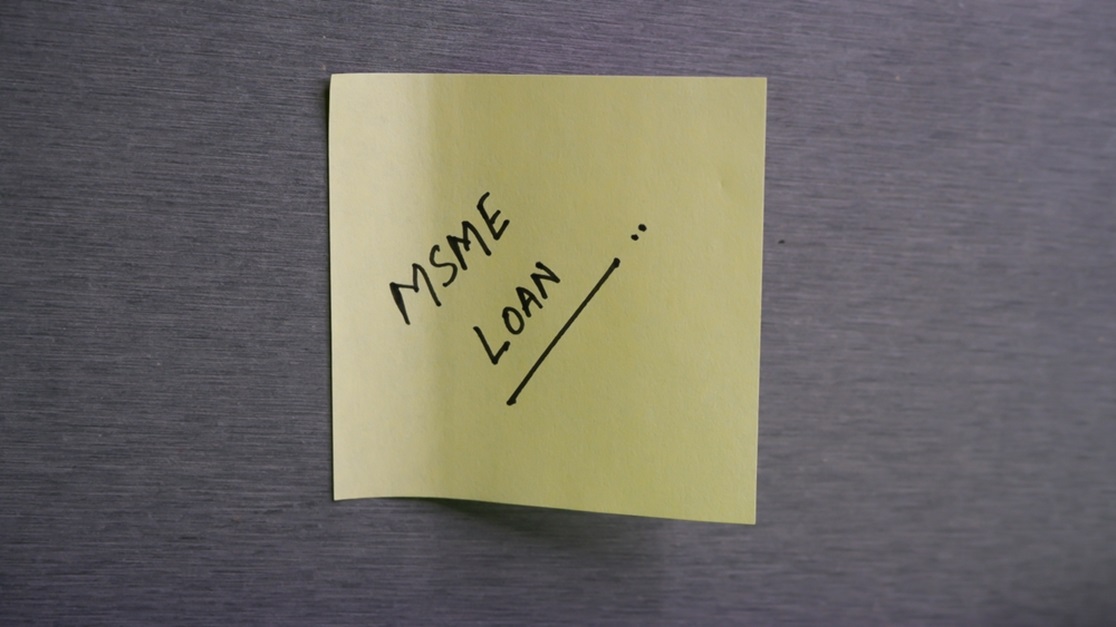Should You Apply for a Business Loan or Personal Loan to Fund Your Business?
April 15, 2025

Starting or expanding a business often requires a substantial financial investment. While you may consider dipping into personal savings or applying for a personal loan, a business loan can be a more effective and structured solution. Choosing the right loan type can significantly impact your financial health and long-term business growth. This blog delves into the differences, benefits, and suitability of business loans versus personal loans, guiding you to make an informed decision.
What is a Business Loan?
A business loan is a financial product specifically designed to fund business-related expenses such as purchasing equipment, expanding operations, or managing cash flow. Business loans generally offer larger amounts, flexible repayment terms, and lower interest rates, especially when secured with collateral. Eligibility is determined based on the business’s financial performance, creditworthiness, and documentation. Business loans can be categorized into secured and unsecured loans.
Features of Business Loans
- Purpose: Specifically intended for operational expenses, purchasing equipment, hiring staff, or expanding the business.
- Collateral: Can be secured (requiring assets as collateral) or unsecured.
- Interest Rates: Generally lower compared to personal loans due to their structured nature and collateral backing.
- Repayment Terms: Tailored to align with business cash flow, offering flexible repayment options.
- Government-backed Business Loan Schemes: Various government-backed schemes in India, such as Pradhan Mantri Mudra Yojana (PMMY), CGTMSE, and PMEGP, provide funding for MSMEs, making it easier for small businesses to access financial support.
- Credit Score Considerations: Business loans help build a company’s credit profile, facilitating easier access to future funding.
- Tax Benefits: The interest paid on business loans is often tax-deductible, lowering the overall cost of borrowing.
What is a Personal Loan?
A personal loan is a versatile, unsecured loan intended for individual financial needs. However, it can also be used for business purposes. Personal loans typically have higher interest rates, smaller loan amounts, and standardized repayment terms. The eligibility for personal loans is based on the borrower’s personal income and credit score rather than the business’s financial performance.
Features of Personal Loans
- Purpose: Can be used for both personal and business-related expenses.
- Collateral: Typically unsecured, meaning no asset is required as collateral.
- Interest Rates: Usually higher than business loans due to the absence of collateral.
- Repayment Terms: Standardized repayment terms that may not align with business cash flow needs.
- Processing Speed: Quick disbursement, often within a few days, making it an attractive option for urgent financial needs.
- Impact on Personal Credit: Since the loan is tied to the individual, any missed payments will affect personal credit scores rather than the business’s credit profile.
Why Business Loans Are More Effective for Business Funding
While personal loans can sometimes serve business purposes, business loans offer several advantages that make them a superior choice for entrepreneurs and business owners:
- Tailored for Business Needs: Business loans come with terms and conditions designed to support business cash flow and operational requirements.
- Larger Loan Amounts: If you require substantial funding for expansion, inventory, or equipment, business loans offer higher limits than personal loans.
- Lower Interest Rates: Business loans usually have lower interest rates, particularly if they are secured with collateral.
- Builds Business Credit: Timely repayments on business loans improve the company’s credit profile, making future financing more accessible.
- Flexible Repayment Terms: Business loans often feature repayment options that align with the enterprise’s cash flow cycle, reducing financial strain.
- Tax Benefits: The interest paid on business loans can often be deducted from taxable income, lowering the cost of borrowing.
Situations Where Personal Loans May Be Suitable
Although business loans are more structured for business funding, personal loans can be a viable alternative in certain situations:
- Small Funding Needs: If the required amount is relatively small (e.g., for purchasing minor inventory or covering temporary cash flow gaps), a personal loan can be a quick solution.
- Quick Disbursement: Business loans may take longer to process due to extensive documentation, whereas personal loans are often disbursed faster.
- No Business Credit History: New businesses without a credit history may find it easier to obtain a personal loan since personal creditworthiness is the primary criterion.
- Lack of Collateral: If your business lacks assets to pledge as collateral, an unsecured personal loan might be the only option.
How to Decide Between a Business Loan and a Personal Loan
Choosing between a business loan and a personal loan depends on various factors. Here are some key considerations:
- Evaluate Your Needs: Determine the purpose, amount, and duration of the funding required.
- Assess Costs: Compare interest rates, processing fees, and repayment terms to identify the more cost-effective option.
- Check Eligibility: Review your business and personal credit scores, financial history, and available documentation.
- Consider Long-term Implications: A business loan helps in building a business credit profile, while a personal loan affects your individual creditworthiness.
- Consult a Financial Advisor: Seeking professional advice can help in choosing the best loan type based on your financial and business goals.
Final Thoughts
For most business funding requirements, business loans are the superior choice. They offer larger amounts, lower interest rates, and repayment flexibility tailored to your enterprise’s needs. However, for smaller, immediate requirements or when business loans are not accessible, personal loans can fill the gap. By understanding the key differences and aligning them with your goals, you can make a well-informed decision that supports your business's long-term success.
Take your business to the next level with Ujjivan Small Finance Bank MSME Loans. We have a host of MSME products tailored for your unique business growth needs. Additionally, we offer MSME Overdraft facilities for urgent business capital requirement. Browse through our suite of products and apply today!
FAQs
1. What is the primary difference between a business loan and a personal loan?
A business loan is specifically designed for business purposes, offering larger amounts and flexible terms, while a personal loan is for general use and may not align with business needs.
2. Are business loans cheaper than personal loans?
Yes, business loans generally have lower interest rates due to collateral options and their focused purpose, whereas personal loans have higher rates.
3. Can I use a personal loan for business funding?
Yes, you can, but it’s not ideal for large-scale or long-term business needs due to limited loan amounts and higher interest rates.
4. What are the tax benefits of a business loan?
Interest paid on business loans is often tax-deductible, reducing the effective cost of borrowing for business purposes.
5. Do I need collateral for a business loan?
Not always. Many lenders offer unsecured business loans, though secured loans with collateral usually come with better terms.
6. Which loan is better for a start-up business?
A business loan is better for start-ups if you have a solid business plan and can meet the lender’s criteria. Otherwise, personal loans may be a fallback option.
7. How do I build business credit with a loan?
Timely repayments of a business loan improve your business credit score, helping you secure better financing options in the future.
8. Are there any specific business loans for women entrepreneurs?
Yes, many financial institutions offer special business loan schemes with favourable terms to encourage women entrepreneurs.
9. What documents are required for a business loan?
Typically, you need financial statements, business plans, GST filings, bank statements, and proof of business registration.
10. How long does it take to get a business loan approved?
Approval times vary but usually range from a few days to a few weeks, depending on the lender and the complexity of the application.
Latest Blogs

Telangana Housing Board & KPHB Colony: A Guide to Affordable Urban Housing in Hyderabad
March 14, 2025
As Telangana continues its rapid urbanisation journey, two key housing entities—Telangana Housing Board (THB) and Kukatpally Housing Board Colony (KPHB)—have played critical roles in shaping the state's real estate ecosystem.

Does Checking CIBIL Score Frequently Lower Your Credit Points?
April 07, 2025
Imagine you're planning to apply for a home loan, a credit card, or even a car loan. Naturally, you want to ensure your CIBIL score is in good shape before proceeding.

Explained: Can NRIs Buy an Agricultural Land in India?
April 03, 2025
Real estate investment is often a top priority for Non-Resident Indians (NRIs) looking to retain strong financial ties to India.

How to Improve Your CIBIL Score from 600 to 750: A Step-by-Step Guide
April 02, 2025
Your CIBIL score is like your financial reputation—banks check it before approving loans or credit cards. If your score is hovering around 600, you might face difficulties in securing credit or may get loans with higher interest rates.

What Happens When You Leave Your Savings Account Unused?
April 01, 2025
Imagine waking up one day to find that your hard-earned money is locked away and inaccessible. Sounds stressful, right? This is precisely what happens when you leave your Savings Account inactive for too long.



